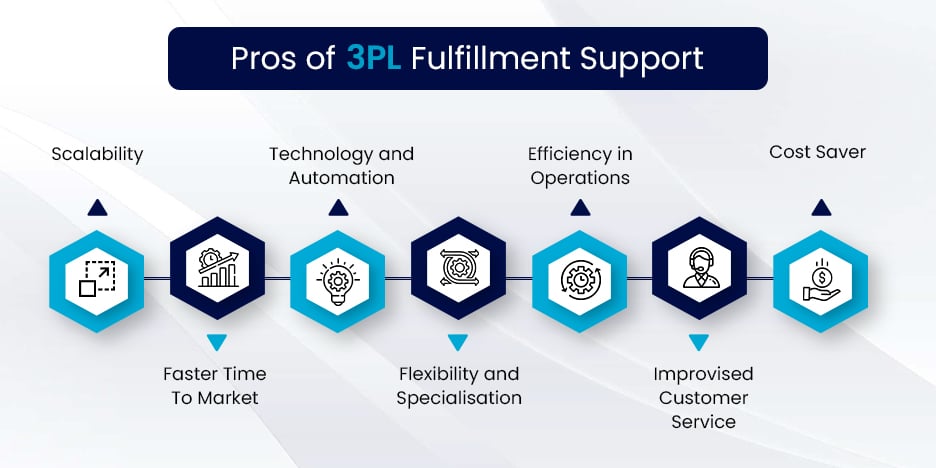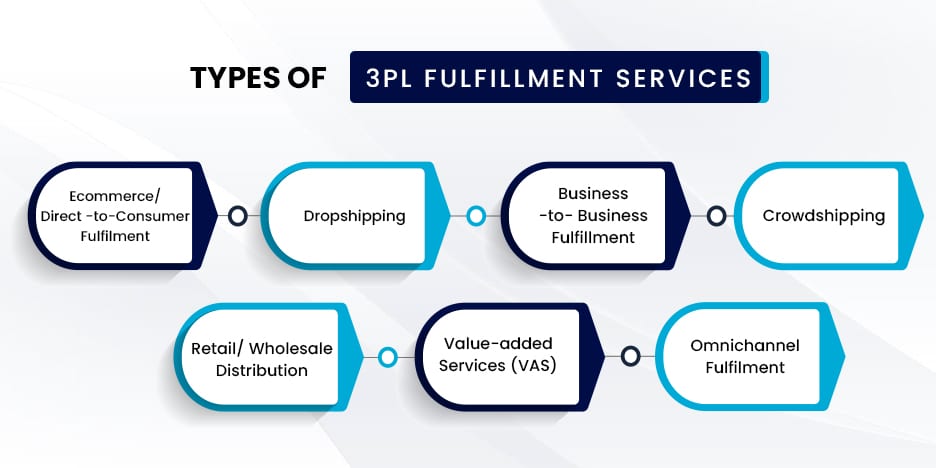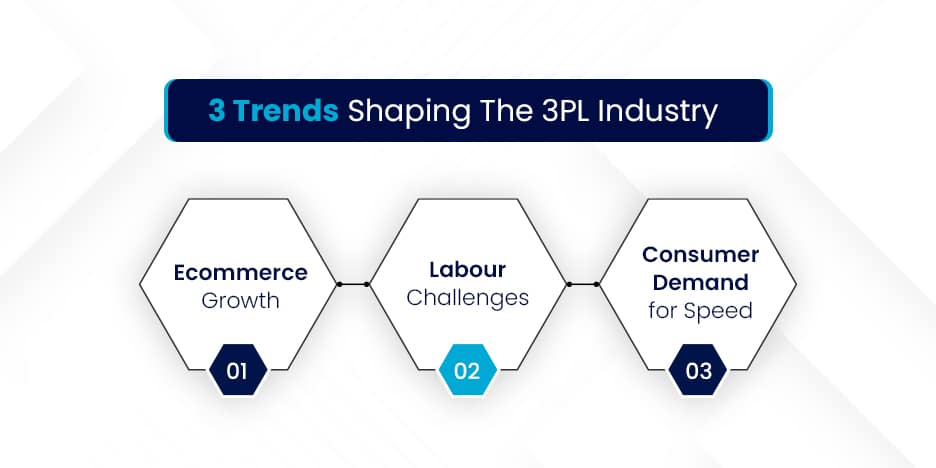
Third-party logistics (3PL) fulfillment refers to the outsourcing of order fulfillment and logistics operations to a specialized company. A 3PL provider typically offers warehousing, order fulfillment, and shipping services on behalf of businesses. With the growing demand for e-commerce across various industries, 3PL services have become essential. Many startups and merchants rely on 3PL providers to efficiently manage increasing order volumes and supply chain operations.
3PL fulfillment providers act as logistics partners for companies that lack their own warehousing and inventory management capabilities. Their services include:
To illustrate, when a customer places an order, the 3PL provider manages the entire process: order processing, picking and packing, applying shipping discounts, and adding promotional items (if applicable) before dispatching the order. Additionally, 3PL providers often offer customer service support, including returns, refunds, and product liquidations. Many also integrate advanced technology to streamline data exchange and enhance order management.
For instance, when a customer places an order, the 3PL manages the entire procedure, from order processing, picking and packing the parcel accurately, mentioning discounted shipping rates, and adding freebies or goodies (if any) to shipping the completed orders.
Not only this, but in 3PL services, you may also receive customer service support related to orders and managing reverse logistics services, like repairs, refunds, and product liquidations. In addition, providers keep a good connection with updated technologies to ensure smooth data exchange and order handoffs.

Modern retailers and brands increasingly rely on 3PL providers to streamline logistics operations. By leveraging expert support and infrastructure, businesses can focus on core operations and scale efficiently. Here are some key advantages of partnering with a reliable 3PL provider:

3PL providers offer a variety of services tailored to different business models and requirements:
1. E-commerce/Direct-to-Consumer (D2C) Fulfillment
Supports online retailers by providing parcel shipping, returns management, and branded packaging for direct-to-consumer sales.
2. Dropshipping
Allows online sellers to fulfill orders directly from suppliers, reducing inventory costs while managing single-unit picking and shipping.
3. Business-to-Business (B2B) Fulfillment
Handles bulk shipments, LTL/FTL freight, trade show distribution, and white-glove installation services.
4. Crowdshipping (On-Demand Delivery)
Utilizes independent couriers for same-day delivery in metro areas, catering to businesses needing fast local distribution.
5. Retail/Wholesale Distribution
Facilitates pallet and case distribution to retail stores and distribution centers, ensuring compliance with retail labeling and advanced shipping notices (ASNs).
6. Value-Added Services (VAS)
Includes kitting, assembly, gift wrapping, customization, and special packaging to enhance customer experience.
7. Omnichannel Fulfillment
Supports unified inventory and order management across e-commerce, brick-and-mortar stores, and in-store pickup locations.

Selecting the right 3PL provider requires careful evaluation. Here are key factors to consider:
3PL fulfillment services play a crucial role in modern supply chains, allowing retailers and businesses to scale efficiently while meeting customer expectations for fast, cost-effective delivery. Outsourcing logistics enables brands to focus on core operations while leveraging expert fulfillment infrastructure.
For businesses seeking a reliable 3PL partner, PPFD offers industry-leading fulfillment solutions. If you have any questions, feel free to reach out to us—we’re here to help!
Share :

For all your fulfillment, logistics and storage needs!
Copyright © 2024 PPFD Ltd.